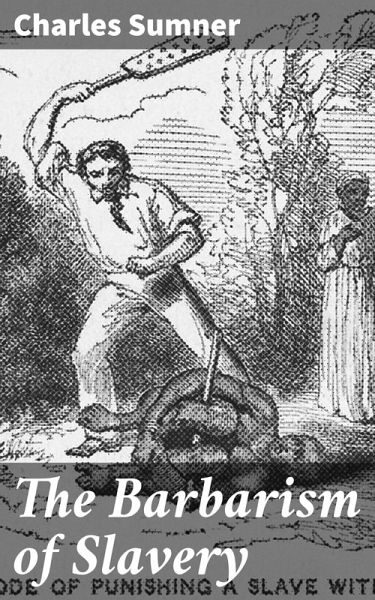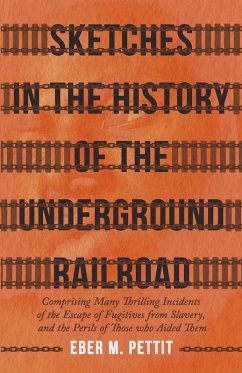
The Barbarism of Slavery (eBook, ePUB)
Confronting the Dehumanizing Legacy of American Slavery

PAYBACK Punkte
0 °P sammeln!
In "The Barbarism of Slavery," Charles Sumner delivers a compelling and unflinching critique of the institution of slavery, intertwining moral philosophy with a rigorous examination of historical and social contexts. Sumner employs a passionate literary style characterized by eloquence and rhetorical fervor, articulating a powerful argument that slavery dehumanizes both the enslaved and the enslaver. This work, deeply rooted in the abolitionist discourse of the mid-19th century, challenges readers to confront the ethical implications of slavery and its ramifications for American society. Charl...
In "The Barbarism of Slavery," Charles Sumner delivers a compelling and unflinching critique of the institution of slavery, intertwining moral philosophy with a rigorous examination of historical and social contexts. Sumner employs a passionate literary style characterized by eloquence and rhetorical fervor, articulating a powerful argument that slavery dehumanizes both the enslaved and the enslaver. This work, deeply rooted in the abolitionist discourse of the mid-19th century, challenges readers to confront the ethical implications of slavery and its ramifications for American society. Charles Sumner, a prominent statesman and ardent abolitionist, was profoundly influenced by the tumultuous socio-political landscape of his time. A graduate of Harvard Law School, his legal background and commitment to justice inspired his ardent opposition to slavery, leading him to become a leading voice in the movement for civil rights. His firsthand experiences with the moral contradictions of slavery fueled his resolve to denounce the practice as a violation of fundamental human rights. "The Barbarism of Slavery" is essential reading for anyone seeking to understand the moral complexities and historical significance of slavery in America. Sumner's articulate prose and incisive arguments provide not only a historical context but also a relevant discussion for contemporary issues of social justice and human rights, making this work a timeless contribution to the discourse on equality.
Dieser Download kann aus rechtlichen Gründen nur mit Rechnungsadresse in A, B, BG, CY, CZ, D, DK, EW, E, FIN, F, GR, H, IRL, I, LT, L, LR, M, NL, PL, P, R, S, SLO, SK ausgeliefert werden.













